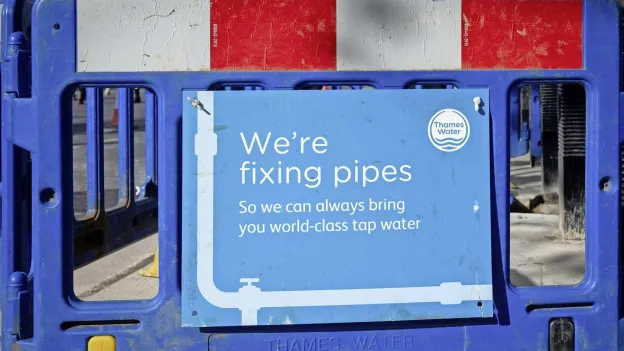
Water prices set to rise in England due to underinvestment and mismanagement

london - Privatized water companies in the UK are facing high debts and a deteriorating sewage system, leading to a significant increase in water prices for consumers.
Privatized water companies in the UK are struggling with high debts and a sewage system that is in disrepair due to years of underinvestment. The result of a regulator that had been neglecting its duties. Now that the regulator has woken up, the price of water is set to rise significantly. British citizens will bear the costs of this chaos.
Former Prime Minister Margaret Thatcher believed the privatization of water companies in the early nineties was necessary. She stated, 'While the Almighty may provide the rain, He is not responsible for the entire network around the water system.' With privatization, companies gained access to capital markets to raise funds for necessary investments to improve water quality.
Somewhere along the way, things went wrong. Last year, the collective water companies discharged 3.6 million hours of sewage into rivers, double the amount from the previous year. With almost constant rainfall, the British sewer systems struggle to handle the excess water, leading to overflow.
Last week, the UK water regulator allowed water companies to increase their bills by 36% over the next few years. This increase is meant to cover the necessary investments to prevent sewage discharge. However, many companies argue that the raise is not sufficient and have officially objected to the decision.
The privatization of water companies sparked debates in the mid-eighties. Water being a vital necessity, many believed it should not be left to the whims of the market. In the UK, an independent regulator was supposed to ensure that companies fulfilled their duties of providing clean water and responsibly disposing of polluted water.
However, this did not happen. Water companies found it more cost-effective to pay low fines for sewage discharge rather than invest heavily in necessary infrastructure. Shareholders were enticed with high dividends, funded by loans obtained from the capital market. Initially debt-free when privatized, water companies now collectively owe nearly €100 billion after over thirty years.
The major culprits are located in the southern part of the country. Southern Water has narrowly avoided bankruptcy in recent years under its Australian owner, Macquarie. This is the same company previously implicated in granting excessive dividends at Thames Water, the utility company for London.
Water companies claim to have made investments, and the figures seem to support this. Over the past decade, more than €250 billion has been spent to modernize the outdated sewage system. However, it has been far from sufficient. The number of sewage discharges has skyrocketed in recent years, with over 450,000 'illegal' discharges reported in 2023, surpassing the figures from previous years.
Water companies claim to be constrained due to stagnant household bills over the past ten years, with some even decreasing. This was enforced by the regulator as a penalty for excessive sewage discharge.
While recent measures might provide a partial solution, challenges remain. Some companies sought price hikes of up to 80% to address overdue maintenance and sewage discharge issues. Thames Water plans to appeal the regulator's decision despite facing penalties for improper dividend payments. The company is awaiting approval for a £3 billion bridging loan, without which it may have to file for bankruptcy by mid-March. The problems facing the UK water sector are far from resolved.


Leave a comment